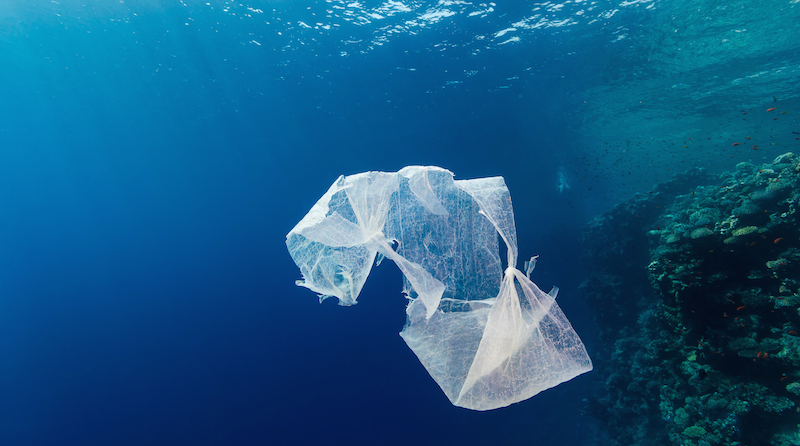
Happy New Year! In 2017 Californians will reduce our plastic bag consumption by over 10 BILLION disposable checkout bags thanks to voters confirming the statewide bag ban in November. Most grocery stores complied with the law immediately while some retailers covered by the law still have not complied.
Some stores have claimed they thought the law took effect on January 1st when state laws are often implemented. Okay, but there’s no excuse now. Some smaller stores, such as a corner convenience store, thought they would be phased in later. Since the original law would have been phased in back in 2015, the law took effect for all stores immediately when the vote was confirmed in 2016.
Here are some guidelines to help enforce the law if you see a grocery store, drug store with groceries, convenience store or liquor store handing out the thin plastic bags for free.
First, read the law and understand which stores are covered. Some of the stores exempt from the law include hardware stores and department stores, such as those in a mall. CalRecycle has placed all of the rules and regulations for the law on their website here.
Second, don’t blame the cashier and don’t be confrontational. The cashier typically does not decide which bags to use so ask for a manager to voice your concerns. Please print this guide out from our friends at CAW to share with the store manager. This guide outlines the law and provides specific text from SB 270.
If this does not solve the problem, then please contact the local public works / environmental services department for your city (or county if you live in an unincorporated area) and/or contact the California Attorney General office by calling the Office of the Attorney General Public Inquiry Unit at (916) 322-3360 or (800) 952-5225 (toll-free in CA)
Local plastic bag ordinances passed prior to September 2014 are ‘grandfathered’ in and outline the enforcement method for those areas. It’s not exactly clear how new areas will enforce the law so you may need to contact your local jurisdiction and the State Attorney General.
Proposition 67 affirmed SB 270, which was passed in 2014 by the California legislature and signed into law by Governor Brown. According to SB 270 a plastic reusable bag is okay as long as it's at least 2.25 mils thick and meets other criteria. If they were swapped out for every thin plastic bag it could be a problem but that's where the ten-cent fee included as part of SB 270 comes in as important. Paper bags and reusable bags can be sold for a minimum charge of ten cents which can be viewed as an incentive for people to remember their reusable bags. Many places throughout the state have been using the same reusable bag criteria and charges for their local ordinances with success. We are not seeing those thicker bags littered or being found at our beach cleanups. Those thicker bags are typically made from recycled plastic so have the smallest carbon footprint when used a few times compared to the thinner bags which need to be made from virgin plastic.
These plastic bags are definitely not my top choice of bags but part of the compromise that got SB 270 passed. I'll still be rocking the canvas bags we get from GreenVetsLA, sewn by veterans with fabric reclaimed from local designers. Many lawmakers were concerned the cost of reusable bags could be out of reach to many people and cause economic hardship. Tough to believe but some people bought it. This loophole is an issue we addressed last year. Hopefully we can strengthen the law in the future but it's a great start for now that is instantly removing millions of plastic bags from the waste and litter streams. In Ventura I see the difference immediately at the grocery store as a majority of people are remembering their reusable bags now.
SB 270 calls for these stores to be covered by the bag ban that account for most disposable plastic bags:
Grocery Stores: Full-line, self-service retail stores with gross annual sales of at least $2 million that sell a line of dry groceries, canned goods, or nonfood items, and some perishable items.
Large Retail Stores with a Pharmacy: Stores that have at least 10,000 square feet of retail space and a pharmacy and that generate sales or use tax.
Convenience Stores, Food Marts, or Liquor Stores: Stores engaged in the retail sale of a limited line of goods, generally including milk, bread, soda, and snack foods, and that hold a Type 20 or Type 21 license issued by the Department of Alcoholic Beverage Control.
Not included are restaurants, hardware stores, department stores and most small business / boutique stores.